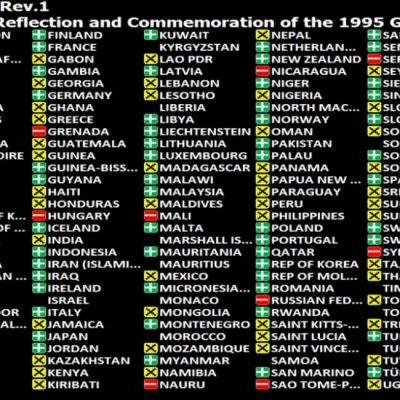The May 23 vote in the UN General Assembly on the “Srebrenica genocide” resolution was not even a PR victory for the collective West countries that spearheaded it. With 84 “yes” votes out of possible 194, this resolution failed to obtain even the plurality of UN member states’ votes. Abstaining states, 68 in total, were the second largest voting bloc. This dismal result was obtained after two postponements of the scheduled vote by the sponsoring countries. The postponements were arranged to gain the sponsors additional time to arm-twist and blackmail reluctant governments. But as a result of the vote that ultimately did take place we now know that there is a considerable number of such reluctant governments, in fact more than could previously be imagined. They are no longer willing to play ball with the Empire and are sick and tired of the Srebrenica charade.
This time it was Srebrenica, but the next time it could be virtually anything and at the political expense of the movers of this resolution. The hegemonic system of discipline, reinforced by a range of instruments of intimidation, is breaking down. That is the object lesson of the spectacular backfire of the Srebrenica resolution. In its hubris, the foolishly overconfident collective West brought the boomerang upon itself.
As Nebojša Malić eloquently explains in this interview with Kit Klarenberg, instead of confirming the viability of one of its major narratives, the collective West got a black eye and exposed its inability to coerce a huge number of governments to accede to its dictate. As its own color revolution theoretician Gene Sharp wrote, the power of tyrants starts to erode once that power is no longer feared by those it oppresses. What occurred in the General Assembly of the United Nations confirms the correctness of that dictum.



